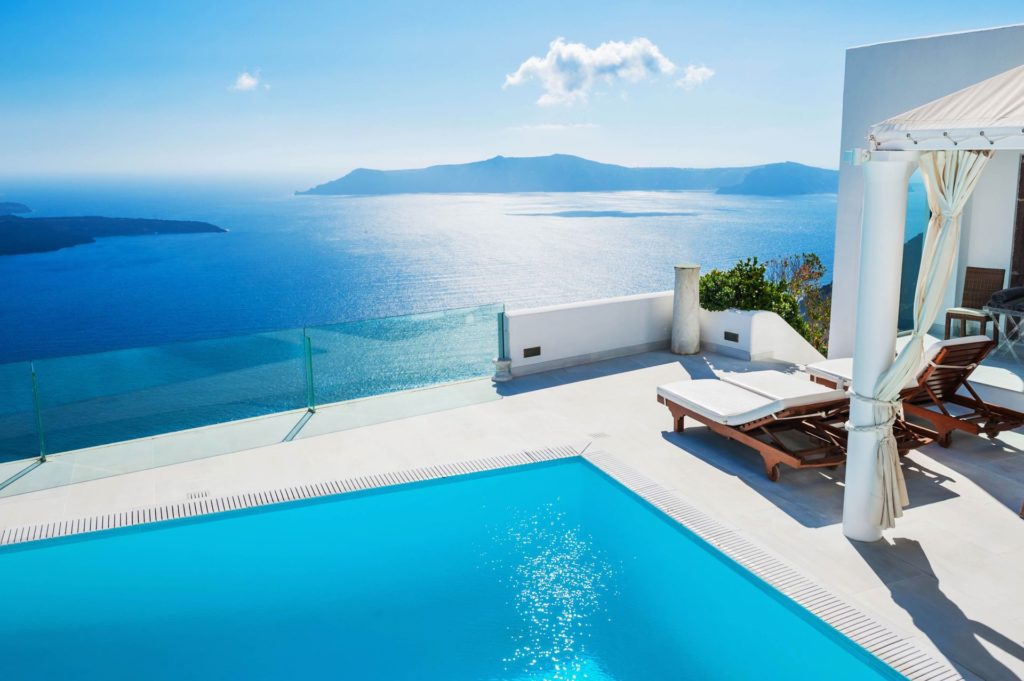
Anyone who at least sometimes goes on vacation or goes on business trips knows: a three-star hotel in Greece and the UAE is not the same thing, five stars do not mean a warm welcome, and some hotels do not have any “stars”. but they do not get worse. We understand where the hotel ratings came from, who and how puts them and on what parameters it is best to choose the perfect room.
What do the stars of hotels mean.
In 2017, the Signiel Hotel opened in Seoul. It is located in a skyscraper 555 meters high, elevators go there at a speed of 600 meters per minute. Guests can book a helicopter transfer to this hotel, and the hotel bar has the largest collection of champagne in all of South Korea.
When Signiel first opened, its owners and journalists immediately began to call it a “seven-star” – so they decided to emphasize that the standard five stars is not enough to appreciate the service and luxury of this hotel. “We know that there really aren’t seven-star hotels,” explained Signiel general
manager Morten Andersen. “But we wanted to show that we are above conventional estimates.” The new hotel in Seoul is not the only establishment that has “appropriated” seven stars. There are such in the UAE and in China.
But in reality, the stars that the hotel “appointed” itself or that it was “awarded” by journalists, by and large, mean nothing. Hotel ratings are assigned by experts from special organizations. In some countries, a state license is required to inspect hotels. Elsewhere, this is done by private companies that have earned the trust of customers. For example, in the United States, one of the most prestigious ratings is the rating of the American Automobile Association. It does not assign diamonds to
establishments, but diamonds. To be ranked, a restaurant or hotel must submit an application. The inspector comes incognito and without warning, and later the owners of the establishments learn about their results. The rating of the American Automobile Association includes only those hotels and restaurants that the inspectors considered worthy. Today it is about 30
thousand establishments with a rating from one to five diamonds. In this case, to get at least one diamond, the hotel must meet fairly high standards.
Why hotels with the same ratings are so different.
There is no single world system that could objectively evaluate all existing hotels. For example, in the United States, along with AAA, the Forbes Travel Guide, which has existed since 1958, is highly trusted. In addition to the States, the company’s experts travel to hotels in 42 countries, claiming a
place in the ranking. Like AAA inspectors, they arrive without warning and act anonymously.
Participation in ratings and obtaining ratings is a voluntary decision of hotel and restaurant owners. You can not invite experts at all and live without stars and diamonds. Many establishments do so, but write “five stars” on their websites to attract tourists. So, if you see that the hotel boasts stars, crowns or diamonds, it does not mean that it has received the recognition of an independent expert. At the same time, different rules and criteria work in different private hotel evaluation companies. The hotel itself chooses which company to contact for a rating – in the same way anyone can bring jewelry to several different appraisers and hear from them different amounts. Each country has its own companies that evaluate hotels. In the UK, one of the most prestigious ratings is the rating of the British Automobile Association. It was invented in 1912. An employee of the association, Stenson Cooke, said that he once sold brandy, and suggested: what if you evaluate establishments with the help of asterisks – to put from one to three depending on comfort and safety?
Everyone who has ever bought brandy is familiar with this classification – this is how this drink is evaluated. For a long time, experts from the British Automobile Association rated hotels and restaurants on a three-star system, and only in 2007 switched to five-star – by this time most companies had made their highest rating “five stars”, and the association decided not to confuse customers. The main thing is that, in fact, the evaluation systems in
different places and different companies are similar. The main indicators for them are the area and number of rooms, the number of services provided, outlets – restaurants, swimming pools, etc. “You can find out a more or less universal assessment of an institution by looking at its “people’s” rating – for example, on Booking.com or TripAdvisor. There, guests from different parts of the world leave feedback, and the points they give to the hotel add up to the arithmetic mean. For many hotels, a high rating on such a site today is no less important than a rating from a prestigious company. Many people try to improve the conditions in their hotel in order to raise their score on Booking.com.




